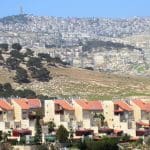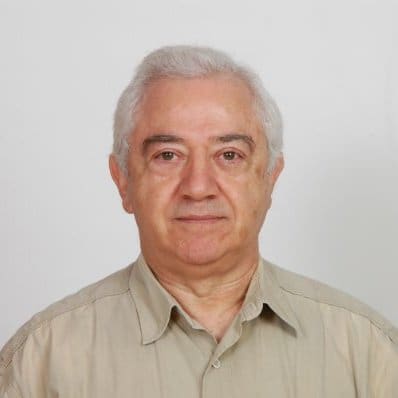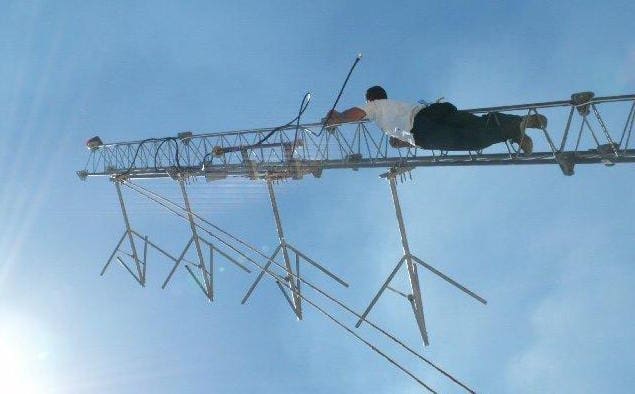
Executive Summary
World attention has been focusing on the Palestinian revolt against Israel’s military occupation. Meanwhile, plans were reportedly still going ahead for an Israeli release of frequencies required for long-awaited 3G and even 4G systems and services. Al-Shabaka Wassim Abdullah, and Sam Bahour provide an incisive account of Israeli obstacles to the Palestinian sector’s development that have led to hundreds of millions in direct losses and lost opportunities.
Key Points
- Israel has violated international law by seriously impeding the development of the Palestinian ICT sector in the Occupied Palestinian Territory (OPT), with severe impacts for Palestinian economic activity.
- Palestinians suffer from restricted cellular services, unavailability of vital equipment, and Israeli capture of Internet services and control of international gateways.
- Israeli telecommunications operators capitalize on Israel’s superior force as an occupying power and the captive state of the Palestinian market at the expense of Palestinian operators.
- The development of Palestine’s ICT sector must be supported by the international community via international forums and targeted private investment, as well as an improved regulatory framework and strategic management by municipalities.
ICT’s Critical Role and its Legal Framework
The ICT sector is a pillar of all other economic sectors, and thus enables and enhances various dimensions of social and economic development. Indeed, the ICT sector has helped drive the limited development possible in Palestine under prolonged military occupation, accounting for roughly 5.6% of GDP. However, the ICT sector in the Occupied Palestinian Territory (OPT) has faced severe constraints due to Israeli restrictions.
According to the Hague Regulations and the Fourth Geneva Convention, Israel has an obligation to allow the development of the territory under occupation – and under no circumstances can it benefit from the occupation. At the present time, communications technology is so vital to human development it has been defined as a human right.
Restricting Access to the Electromagnetic Spectrum
Despite its obligations under international law, Israel has seriously constrained access to the electromagnetic spectrum. The Palestinian mobile company, Jawwal, serves more than 2.5 million customers with a spectrum nearly one eighth the spectrum Cellcom Israel Ltd uses for some 3 million subscribers.
Hitherto, Israel withheld additional frequencies in the Second Generation (2G) band from Jawwal and Wataniya Palestinian mobile operators, and has not released those required for Third and Fourth Generations systems and services (3G and 4G). By contrast, it released 4G mobile broadband radio frequencies (including those covering the West Bank and Gaza Strip) to six Israeli companies back in January 2015.
For decades, the prohibited access to these services has resulted in severe technological barriers to Palestinian companies. GPS, Paypal, and other mobile applications that users in other countries take for granted are not available through Palestinian providers.
Israeli Operators Reap What Palestinians Sow
Israeli operators have been able to offer Palestinian customers better quality services at the expense of Palestinian operators. For example, Israeli operators have built 3G towers in the illegal Israeli settlements while Palestinian operators are broadly excluded from building service towers in Area C.
Moreover, Israeli operators sell 3G and 4G SIM cards in the West Bank, and have siphoned off a share of the Palestinian Internet market. It is estimated that 20% to 40% of the Palestinian telecommunication market share is seized by Israeli operators. A 2008 World Bank report estimates loss in PA revenue due to unauthorized Israeli operators to be $60 million annually.
Tightly Controlling the Infrastructure
Palestinians have been denied the right to build a Palestine-based international gateway in contravention of resolutions 12, 18 and 125 of the International Telecommunication Union (ITU). Israel has allowed for three fiber optic cables and two microwave links between the West Bank and the Gaza Strip, making it difficult to create an independent Palestinian telecommunication network.
The infrastructure in Gaza itself is completely dependent on Israel. The only fiber optic cable that connects Gaza with the world is placed in Israel. All calls must be routed through Israel, thus rendering Gaza a space of control and surveillance, as seen during Israel’s assault on Gaza in the summer of 2014.
Restricting Access to Essential Equipment
The lengthy process of testing standards compliance and security checks imposed on Palestinian importers of ICT equipment has been a major obstacle to ICT development. Moreover, Palestinian importers are bound by an Israeli-defined “dual-use items” list, prohibiting or placing obstacles to the import of equipment used for communications or network infrastructure.
Severe Israeli restrictions on the freedom of movement of people in the OPT through a hermetic system of physical, institutional, and administrative barriers are another major obstacle to ICT development. These restrictions affect the ICT sector simply by making it harder for those working in it to travel within the OPT and between the OPT and the rest of the world, affecting access to universities and exchanges with experts overseas, among other constraints.
The Way Ahead for Palestine’s ICT Sector
- The PLO/PA should use Palestine’s observer state status and ITU resolutions to lobby for free access to its full frequency spectrum and a Palestinian international gateway that is independent of the Israeli one. Members of the international community could use reciprocity as a tool to further support Palestine in securing its rights through the ITU and in other international forums.
- Companies worldwide can play a vital role in developing the Palestinian ICT sector through direct outsourcing projects to Palestine, supporting innovators and start-ups, and investing in Palestinian skills and knowledge in nanotechnology, IT security techniques, and 3D printing.
- In order to provide more effective regulation and governance of the ICT sector, a Palestinian Telecom Regulation Authority should be established. There is also an urgent need to update the main law governing the ICT sector since it dates from 1996 and does not take into account the global evolution in technology.
- Initiatives at the municipal level are possible without waiting for external actors, including installing fiber backbone and microwave links, solar power panels on street lighting poles, and citywide wireless networks. In addition, mesh wireless networks are a promising new avenue for municipalities because they are not dependent on centrally-located towers.
Overview 1
In the summer of 2015 reports surfaced that Israel and the Palestinian Authority were set to sign an agreement on releasing the long awaited frequencies required for Third and perhaps even Fourth Generation (3G and 4G) systems and services. By November, those plans were reportedly still going ahead. It remains to be seen whether the negotiations are affected by the widespread Palestinian revolt against Israel’s prolonged military occupation and denial of the most basic human rights.2
It was unclear why Israel had suddenly decided to be so forthcoming after tightly controlling the ICT sector since the occupation began in 1967 while reaping billions of dollars in the process, all in violation of international law. Perhaps Israeli Prime Minister Benjamin Netanyahu had planned to revive his long-standing efforts to promote “economic peace” in lieu of a political settlement that would fulfill Palestinian rights. What is clear is that the Palestinian economy has paid a high cost for its inability to exploit its own information and communication technology (ICT) resources. To take just one example, it is estimated that Palestinian operators lose $80 to $100 million annually as a result of the lack of 3G services.3
Against this background, Al-Shabaka analysts Wassim Abdullah and Sam Bahour provide a comprehensive account of the Israeli obstacles to the Palestinians’ ability to take advantage of their electromagnetic spectrum and radio frequencies and the many difficulties in the way of the sector’s infrastructure development including the restrictions on essential equipment. They also analyze the importance of ICT to Palestinian development and the losses and opportunity costs incurred. They conclude with recommendations to the different actors involved that should be taken into account irrespective of the way in which a Palestinian-Israeli agreement on ICT evolves.
ICT’s Critical Role and its Legal Framework
The ICT sector is defined as the “combination of manufacturing and services industries that capture, transmit and display data and information electronically.” It is seen as a pillar of all other sectors, including industry, agriculture, transport, health, education, governance, trade, banking, and tourism, among others, and thus enables and enhances different dimensions of social and economic development. In addition, there is a strong positive correlation between direct investments in ICT and job creation, with a multiplier ratio of around 1 to 3; in other words, a new job in ICT creates three jobs in other sectors. Moreover, by providing a vehicle for the transfer of information in cost-effective ways, the ICT sector is essential for the establishment of a knowledge-based economy. It is no exaggeration to describe the ICT sector as a key engine of development.
Indeed, the ICT sector has helped to drive the limited development that has been possible in Palestine under prolonged military occupation. It accounts for 5.6% of the Palestinian Gross Domestic Product according to 2012 estimates at current prices. Had Palestinians been able to further develop their ICT sector, it could have been – and still could be – an important tool to achieve social, economic, and political integration between the West Bank and the Gaza Strip. Some have argued that, because one can develop and market software from any location, ICT could also be a way for the Palestinians to overcome the many restrictions on movement and access that Israel imposes on the population and that hinder other industries. This approach is problematic because it focuses efforts on occupation-circumventing activities rather than on securing basic Palestinians rights. Moreover, as this paper will discuss below, the ICT sector itself has faced severe constraints in terms of access to the requisite technology due to Israeli restrictions.
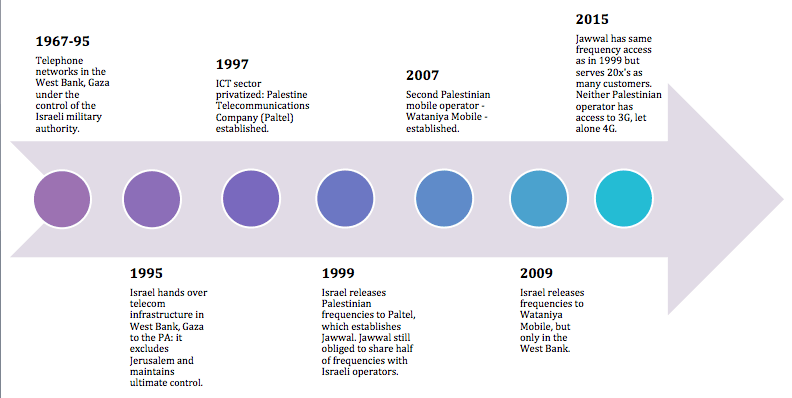
The legal framework applicable to Palestine’s ICT sector includes international human rights and humanitarian law and other international treaties dealing with telecommunications and related spheres as well as the Oslo Accords that were signed between Israel and the Palestine Liberation Organization (PLO) between 1993 and 1998. Even though the interim period set out by the Oslo accords for a final status agreement technically ended in 1999, the accords have still been in use by both Israel and the PLO to govern their day-to-day relations. Under international humanitarian law, Israel, as an occupying power, is obliged to ensure the welfare of the occupied population and “under no circumstances can Israel or its population benefit from the occupation”.4 Israel also has an obligation to allow the development of the territory.
In line with the evolving understanding of what constitutes human rights, development was recognized as a human right in 1993. At the present time, communications technology is seen as being so vital to human life that it is also being defined as a human right. The Broadband Commission for Digital Development issued a statement in 2011, co-sponsored by the International Telecommunication Union (ITU) and the UN Educational, Scientific, and Cultural Organization (UNESCO), affirming that communication is a right and urging countries to make access to broadband infrastructure a top policy priority.
An important point worth noting is that the applicability of the Fourth Geneva Convention does not terminate as a result of bilateral agreements such as those signed between the Palestinians and Israelis. Therefore, the Oslo Accords, which have intensified the asymmetric power relations between Israel and the Palestinians living under its military occupation, should not be viewed as the only framework governing Palestinian-Israeli dealings: International conventions must also be applied.
Restricting Access to the Electromagnetic Spectrum
Despite its obligations under international law, Israel has seriously impeded the development of the ICT sector, particularly by constraining access to the electromagnetic spectrum. For example, Jawwal, the first Palestinian mobile telecommunication company established in 1999, was licensed access to 4.8 MHz (half exclusive to Jawwal and half shared with Israeli operators) in the 900 MHz band to cater for 120,000 subscribers. However, by this summer Jawwal still operated with the same access but for more than 2.5 million customers. As a result, Jawwal has had to endure a very high frequency load and has been forced to spend additional capital to build extra towers in order to maintain its services. By contrast, Cellcom Israel Ltd, Israel’s primary cellular company, had a total spectrum of 37 MHz by 2009 – more than seven times bigger than that of Jawwal for its nearly 3 million subscribers.
Wataniya Mobile, the second Palestinian mobile operator, signed its license agreement with the Palestinian Ministry of Telecommunications and Information Technology (MTIT) in 2007. Wataniya was granted 1.8 MHz in the 900 MHz Band and 2.8 MHZ in the 1800 MHz band. However, it was only able to start operations two years later when Israel agreed to release the frequencies. Moreover, Israel only released frequencies for Wataniya Mobile in the West Bank effectively prohibiting its operation in the Gaza Strip.
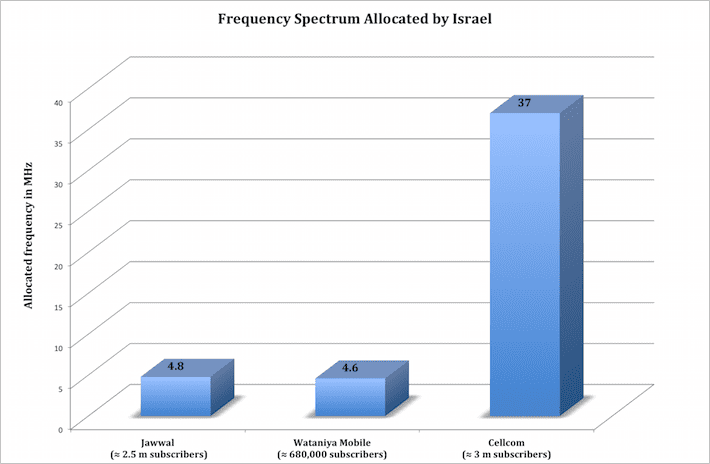
Hitherto, Israel had refused to provide the two Palestinian mobile operators with additional frequencies in the Second Generation (2G) band, let alone release the frequencies required for the Third and Fourth Generations systems and services (3G and 4G). By contrast, it released 4G mobile broadband radio frequencies (including those covering the West Bank and Gaza Strip) to six Israeli companies back in January 2015. In addition, Israel has denied the release of frequencies to allow Palestinian companies to deploy WiMax systems to provide broadband wireless access over longer distances.5 As a result, the only option for Palestinian Internet providers has been Wi-Fi technology. It remains to be seen how any new agreement on access to ICT between Israel and the Palestinians will be implemented.
Meanwhile, for decades the prohibited access to these services has resulted in severe technological barriers to Palestinian companies. The 2G frequencies that have been available were unable to provide quality services, especially data value added services for new generation smartphones, which Palestinian customers want. GPS, Paypal, and other mobile applications are thus not accessible on the Palestinian network: Basic functions that users in other countries take for granted are simply not available through Palestinian providers, forcing both the business community and other customers to look elsewhere to the advantage of Israeli Internet providers.
Israeli Operators Reap What Palestinians Sow
Israeli operators have been able to offer Palestinian customers better quality services at the expense of Palestinian operators by capitalizing on Israel’s superior force as an occupying power and the captive state of the Palestinian market. For example, Israeli operators have built 3G towers in the Israeli settlements – which are illegal under international law – strategically locating these on hilltops across the OPT and, in many instances, on privately owned Palestinian land. By contrast, Palestinian operators are broadly excluded from building service towers in Area C.6 Moreover, Israeli operators sell of 3G and 4G SIM cards (especially Cellcom and Orange) in the West Bank, which has allowed them to siphon off a share of the Palestinian Internet market because the Israeli services are cheaper. Consequently, it is estimated that 20% to 40% of the Palestinian telecommunication market share is seized by Israeli operators, leading to major losses in revenue. Indeed, as noted in the Overview, it is estimated that Palestinian operators lose $80 to $100 million annually as a result of the lack of 3G services.7
Beyond the international law restrictions on an occupying power profiting from its occupation, the competition by Israeli operators is illegal in several respects. The operators cover areas under the Palestinian Authority’s (PA) control in violation of Art 36 (4.b) of Annex III in the Interim Agreement between Israel and the PLO; they are not subject to environmental oversight, and they do not pay taxes to the PA on the telecom cards that are sold in the West Bank.
In a 2008 World Bank report on the sector, the loss in the PA’s revenue was estimated at $60 million annually due to unauthorized Israeli operators. There were estimates that Palestinian mobile losses in 2014 could have been as high as $240 million, alongside a fiscal loss of value-added tax of between $10 and $40 million to the PA, although these figures are the subject of debate. More authoritative data are expected in a report scheduled for publication later this year.
In short, while Israeli companies accrue illegal commercial benefits Palestinians bear not only financial losses but also opportunity costs through the thwarted development of next generation information society applications such as, e-governance, e-health, e-commerce, digital media, and other spheres. Moreover, the absence of 3G and 4G services has constrained technical innovation in the territories, although there are some promising technology startups despite the difficulties – e.g. the start-up accelerators Gaza Sky Geeks.
Similarly, the Palestinians’ access to the radio frequency spectrum, has also suffered losses as a result of Israel’s control.8 Radio too is key to development and a major employer. It had an august history in Palestine: The second transmitter in the Middle East was built in Ramallah in 1936 by the British during their mandate over the country. Israel damaged this transmitter tower in 2000 and destroyed it and the transmitter room in 2002 during the Second Intifada. Kuwait was willing to send a replacement AM transmitter but Israel wouldn’t allow it into the occupied territory, thus restricting the Palestinians to FM frequencies. This was a major blow to the Palestinians’ ability to broadcast to the rest of the region: Whereas AM can cover vast territory, FM coverage is easily blocked in hilly or built up areas and far more transmitters are needed. Meanwhile, Israel also occupied and has been broadcasting on the Palestinian’s medium wave radio frequency to this day.
There was a time when Palestine had more private radio and TV stations than the rest of the entire Arab world, a proliferation that was partly due to the fact that the Ministry allowed private radio stations to operate because this was seen as a way to “counter-occupy” the frequencies pending their legal registration at the ITU. This situation remained in place until some frequencies were legally assigned to Palestine through the ITU in addition to those listed in Art 36 (4.b) of Annex III in the Interim Agreement. Only then was the PA able to begin licensing local FM radio and TV stations.
Tightly Controlling the Infrastructure
Not only does Israel illegally restrict Palestinians’ access to the electromagnetic and radio frequency spectrums, but it also has complete control over the international gateways. Palestinians have been denied the right to build a Palestine-based international gateway including submarine cables, satellite earth stations, microwave systems, and optical fibers, in contravention of resolutions 12, 18 and 125 of the ITU.9
When the MTIT requested the establishment of a Palestinian international gateway in the late 1990s, Israel agreed on the condition of excluding East Jerusalem from the Palestinian network, a condition that was impossible for the Palestinians to accept given that East Jerusalem is part of the Israeli-occupied territory and is recognized as such by the international community and under international law. Palestinian operators have built independent international gateways – but outside Palestine. And, even though it connects to international carriers directly, Israel gets a cut on every call from Palestinian operator’s externally placed gateways to their West Bank and Gaza users.
This has not only impacted telecommunications between the OPT and the rest of the world; it has also affected these within the OPT itself and in particular between the West Bank, including East Jerusalem, and Gaza. Israel has only allowed for three fiber optic cables and two microwave links between the West Bank and the Gaza Strip, making it impossible to create an independent Palestinian telecommunication network.
The infrastructure in Gaza itself is completely dependent on Israel. The only fiber optic cable that connects Gaza with the world is placed in Israel. Thus, all calls must be routed through Israel. The telecommunication infrastructure in Gaza has thus become a space of control and surveillance, as reflected in the calls and text messages that the Israeli military sent during its assault on Gaza in the summer of 2014.
Israel’s control over telecommunication infrastructure is also manifested in the West Bank. As noted above, companies rarely get permission to build service towers in Area C, but they are also prohibited from building switches in Area A, which is supposed to be under sole PA control under the Oslo accords.10 This has forced Jawwal to locate its switches to London and Jordan, while Wataniya Mobile had to build them in East Jerusalem, under Israel’s control.
Because of constraints on infrastructure development, Palestinian transmitters cannot cover all cities in the West Bank and thus direct terrestrial connection within the West Bank is nonexistent. Hence, when a Palestinian cellular operator has no coverage for a call between Ramallah and Nablus, for example, Palestinian operators have to roam on Israeli networks. By contrast, Israeli operators have coverage over most Palestinian cities. This gives Israeli companies an additional financial advantage: They get a percentage surcharge on revenues from calls between the mobile phones of Palestinian and Israeli operators, and collect revenues from calls between Palestinian cellular phones and landlines.
As for East Jerusalem, its telephone network has been excluded from the Palestinian network, deepening the fragmentation between the different parts of the OPT and further isolating the city itself from the rest of the Palestinian territory.
Restricting Access to Essential Equipment
The lengthy process that Palestinian shippers have to go through to be allowed to import ICT equipment has been a major obstacle to ICT development. In fact, Palestinians are required to get approval from the Israeli Ministry of Communications for each shipment they have. Hence, even if a Palestinian trader has two shipments of the same product, she or he must get an approval for each shipment. To get this approval, Palestinian shippers must provide: a certificate of origin; an invoice; an air waybill; a packing list with details on the quantities imported and their standards, which should comply with Israeli standards; explanation of the need of the product and information regarding the end-user. The import request must be submitted to the Coordination of Government Activities in the Territories (COGAT), a division in the Israeli Ministry of Defense, and then to the Israeli Ministry of Communications and the Standards Institution of Israel to get approval. This process used to take one to two months in the early 2000s and now still takes up to 30 days.11
As a result of the long periods of testing standards compliance and security checks by the Israeli authorities, severe time delays are inflicted upon Palestinian shippers. For instance, when Wataniya Mobile was about to start its operations in 2009, essential ICT equipment was held in customs for more than five months. Moreover, unlike Israeli traders, Palestinians are bound by an Israeli-defined “dual-use items” list. According to Israeli claims, “dual-use items” are products that can be used for military purposes in addition to civilian ones, such as equipment with a communications function or equipment used for communication network infrastructure. The Israeli government either prohibits the import of these items to the OPT or imposes lengthy security measures to inspect the products and license their import, even though most of these products may be purchased off the shelf inside Israel.
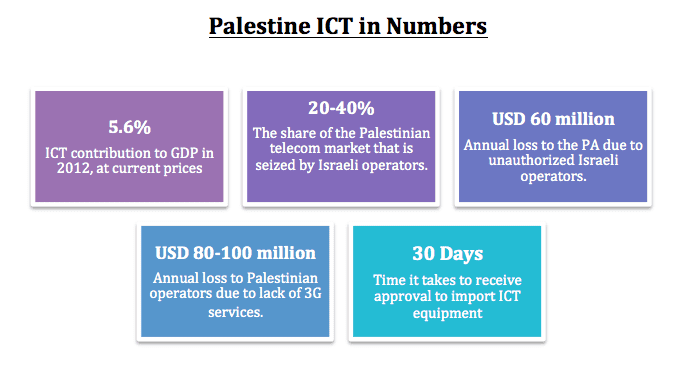
Israel’s discriminatory policies are also manifested in their preventing Palestinian clearance agents or customs employees from accessing Israeli ports or crossings. Thus, Palestinian traders do not have any point of contact of their own for investigations on the status of their shipments or the reasons they may have been refused by Israeli customs. Israel also refuses to disseminate trade-related information and does not consult with Palestinians when changing trade regulations, leading to delays, miscommunication, and additional costs.
The import process becomes even more tedious in the case of transfer of ICT equipment from the West Bank to the Gaza Strip. In such cases, Palestinians need to apply for approval for each shipment going to Gaza (a process that takes between one to four weeks), and must then wait for the specific day on which imports to Gaza are allowed, generally Mondays.12
The delay inherent in these processes has led to extra direct costs (storage, damage/losses of some goods, decline in the actual value of the product, etc.) Israel’s measures against Palestinians have also prevented a level playing field between Palestinian and Israeli traders. The high transport and other costs incurred by Palestinians are reflected in the final price of the good, thus eroding the competitiveness of Palestinian products. This has encouraged some Palestinian customers to import from Israeli markets instead of importing from abroad or buying from Palestinian clients, since this would be much easier, quicker, and less costly.
Israel also receives commercial benefits by, effectively, blackmailing Palestinian traders. For instance, if a company has a bid to import ICT products by a specific date, Israeli customs brokers would only allow the shipment if the company pays a sum of money. It is informally estimated that Israeli customs brokers gain millions of dollars through these practices.13
In addition to the costs borne by Palestinian ICT companies, the Palestinian government also incurs fiscal revenue losses. Indirect imports – the entry of non-Israeli products to the OPT as if they were of Israeli origin – has led to leakage of taxes, since the PA can only claim the VAT revenues and not customs duties. In case of smuggling or the non-submission of a clearance bill to the Palestinian tax offices, Israel retains all revenues from these taxes, leading to considerable losses to the Palestinian government. This does not just apply to ICT imports: An UNCTAD study found that there was over $310 million worth of fiscal leakage in 2011 – as much as 3.6% of GDP – as a result of importing goods from or through the Israeli market.
Severe Israeli restrictions on the freedom of movement of people in the OPT through a hermetic system of physical, institutional, and administrative barriers is another major obstacle to ICT development. Fixed and flying checkpoints, earth mounds, trenches, road gates, roadblocks, the Separation Barrier, and stringent permit requirements are among the hallmarks of Israel’s occupation. These restrictions affect the ICT sector simply by making it harder for those working in it to travel within the OPT and between the OPT and the rest of the world, affecting access to universities and exchanges with experts overseas, among other constraints.
The Way Ahead for Palestine’s ICT Sector
Major changes in the Palestinian ICT sector may be brought in by the agreement that has been under discussion between the Palestinian Ministry of Telecommunications and Information Technology and the Israeli Ministry of Communications, but it remains to be seen how it will be implemented. Regardless, Israel is unlikely to completely lift its hand from this key sector.
As the above discussion has shown, Israel has violated its obligations as an occupying power. The severe restrictions on the Palestinian ICT sector – in common with all other sectors – have crippled social and economic development. These restrictions are not based on any valid security argument. The fact that Israeli operators provide Palestinians with the same services that are restricted to Palestinian operators, as previously discussed, suggests that the obstacles imposed by Israel are not designed to address security concerns. Rather, they appear punitive in nature and have resulted in massive economic gains to Israel and Israeli companies, thus increasing dependency on Israel, and putting the resilience of the population and its ability to achieve self-sufficiency at risk.
What steps could the PLO and the PA take in the present context? What steps should Israel take, as the occupying power? How can the international community as well as the Palestinian private sector play a role? Our recommendations are grouped into four broad areas that are necessary for the Palestinian ICT sector to thrive.
1. Israeli Restrictions on and Profits From the Electromagnetic Spectrum No matter how far a new agreement goes, it will not be fully effective unless Israel completely lifts its hand off Palestine’s ICT sector. If it does not, the PLO/PA should use Palestine’s observer state status and ITU resolutions to lobby for free access to its full frequency spectrum and a Palestinian international gateway that is independent of the Israeli one.
The PLO/PA can – and should – also file for losses and damages in all available venues due to Israeli restrictions on the development of the sector as well as the lost opportunity costs and should claim the profits the Israeli government and companies have made over the past several years.
The role of the international community is key in this area. The members of the European Union, the United States, and other countries could further support Palestine in securing its rights through the ITU and in other international forums. They can also bring their influence to bear with Israel to respond positively to Palestinian claims. They could enhance their leverage with Israel by using reciprocity as a tool by, for instance, increasing the cost of telecommunication traffic between Israel and another state.
2. Expanding International ICT Links The private sector in various Western countries has, with government support, invested in Palestine’s ICT sector. However, it has done this in a way that is avowedly “apolitical” in a highly political situation, wittingly or otherwise facilitating Netanyahu’s plan for an economic peace in lieu of Palestinian sovereignty and rights.14 Such ventures can only prolong the situation in which Israel manages Palestinian development, including the ICT sector, to its own advantage, as described in this policy brief. Instead international assistance should support Palestinian capacity to develop the sector and to address as well as to challenge the constraints imposed by Israel’s occupation.
Companies worldwide can play a vital role in developing the Palestinian ICT sector through direct outsourcing projects to Palestine, for instance, translation of courses, video games and cartoon film technologies. They could also support innovators and start-ups, and invest in Palestinian skills and knowledge in nanotechnology, IT security techniques, and 3D printing. Companies should, of course, comply with their own policies to conduct business in a socially responsible manner consistent with international law.
At the same time, the Palestinian private sector should also pursue more direct trading with the outside world, and establish relationships with foreign companies to promote foreign investment in and transfer knowledge to Palestine. This is in addition to coordinating effort with the Palestinian Authority where applicable. Palestinian companies with the support of the PA can also develop a branding strategy to promote the Palestinian ICT industry worldwide – and at home so that local companies recognize the excellence of local products and services where these exist.
3. The PA’s Regulatory Role In order to provide more effective regulation and governance of the ICT sector, a Palestinian Telecom Regulation Authority should be established. The MTIT currently performs the role of the regulator, but an independent regulatory body would be able to provide oversight to the development and performance of the ICT sector. There is also an urgent need to update the main law governing the ICT sector since it dates from 1996 and does not take into account the global evolution in technology. In parallel, there are current laws in effect that could be acted upon to hold Israel accountable even before the Palestinian Telecom Regulation Authority is operational.
Taking further action to develop the sector would encourage the Palestinian Ministry of Education and Higher Education to hold Palestinian academic institutions to a higher global standard in this sphere and to develop Palestinian skills in innovation, creativity, research, critical thinking, and science and technology.
4. Working at the Municipality Level Palestinians could consider initiatives at the local level without waiting for external actors. More specifically, each Palestinian municipality could make sure that areas under its control are well connected by ensuring the installation of fiber backbone and microwave links. Municipalities can also add solar power panels onto their street lighting poles as well as a wireless network to ensure citywide Wi-Fi. In addition, mesh wireless networks, which are not dependent on centrally-located towers and can bypass obstacles like hills, are a promising new avenue for municipalities. Indeed, local companies proposed a study for Ramallah modeled on Brazilian and US cities using street lighting poles but were not able to secure the funding. Such local-level projects should ideally be undertaken within a clear overall vision and strategy.
These are all doable actions. However, the full development of the Palestinian ICT sector depends on an end to Israel’s controls and more broadly ending its occupation of the OPT and its denial of Palestinian rights. Palestine should own the full frequency spectrum it is entitled to according to the ITU and international law as is the case with all other countries and be able to deal with interference and interconnection issues as and when they arise.
- The authors thank the Heinrich-Böll-Foundation’s Palestine/Jordan Office for their partnership and collaboration with Al-Shabaka in Palestine. The views expressed in this policy brief are those of the authors and therefore do not necessarily reflect the opinion of the Heinrich-Böll-Foundation. The authors would also like to thank Zaha Hassan, Ehsaneh Sadr, Nadia Hijab, and Alaa Tartir for their feedback and support in shaping this policy brief.
- Al-Shabaka publishes all its content in both English and Arabic (see Arabic text here.) To read this piece in French, please click here. Al-Shabaka is grateful for the efforts by human rights advocates to translate its pieces into French, but is not responsible for any change in meaning.
- “3G Frequency for the Telecommunications Sector in Palestine: A Vital Economic Enabler.” Paltel, Ramallah, 2014.
- From Pillage of the Dead Sea: Israel’s Unlawful Exploitation of Natural Resources in the Occupied Palestinian Territory, Al-Haq, 2012, p. 26. For an excellent and succinct analysis of the position of international law on the role of an occupying power see pp. 25 – 30.
- WiMAX (Worldwise Interoperability for Microwave Access) is a wireless communications standard that provides broadband wireless access over longer distances (3 to 10 miles) than standard Wi-Fi (100 to 300 feet).
- The West Bank was divided into areas A, B, and C under the Oslo accords. Area A (18% of the West Bank) was supposed to fall under full PA control; Area B (22% of the West Bank) was to be under Palestinian civil control and joint Palestinian and Israeli security control; Area (60% of the West Bank) fell is under full Israeli control.
- Paltel. 2014, op. cit.
- The information on the radio frequency spectrum is provided by co-author 24584 who was closely involved in the development of the sector.
- Among other things, these resolutions recognized the significant damage to the Palestinian telecommunications sector and instructed the Telecommunication Development Bureau to facilitate the establishment of international access networks, including terrestrial and satellite stations, submarine cables, optical fiber and microwave systems.
- A switch is device for making and breaking the connection in an electric circuit; it is the heart of any telecommunications network, directing traffic from one user to another.
- Author interviews.
- Author interviews with the head of a major Palestinian ICT company, July 2015.
- Author interviews with a representative of the Palestinian Shippers’ Council, July 2015.
- See, for example, Forbes’ extensive coverage of the “secret” Israeli-Palestinian tech ventures, which involve such actors as CISCO systems.
Wassim F. Abdullah is a veteran engineer in electronics and telecommunications who has worked on diverse projects and policies to encourage multi-media and an information-based economy in Palestine. These include TV and radio stations, the Palestine Media Center, the Palestinian Legislative Council video-conference system between Ramallah and Gaza and its integration with the voting system, and the audio and lighting systems of Ramallah festivals. He also participated in the design of the IT strategy for Palestine and has consulted for Palestinian governmental as well as international organizations.
Sam Bahour resides in Al-Bireh/Ramallah, Palestine. He does business consulting as Applied Information Management (AIM), specializing in business development with a niche focus on the information technology sector and start-ups. Bahour was instrumental in the establishment of two publicly traded firms: the Palestine Telecommunications Company (PALTEL) and the Arab Palestinian Shopping Centers (APSC). He is Co-founder & Emeritus Member of Americans for a Vibrant Palestinian Economy (A4VPE). He currently is an independent Director at the Arab Islamic Bank PLC and a board member at Just Vision. He writes frequently on Palestinian affairs and has been widely published in leading outlets. He is co-editor of HOMELAND: Oral History of Palestine and Palestinians (Olive Branch Press, 1993), tweets at @SamBahour, and blogs at epalestine.ps.














